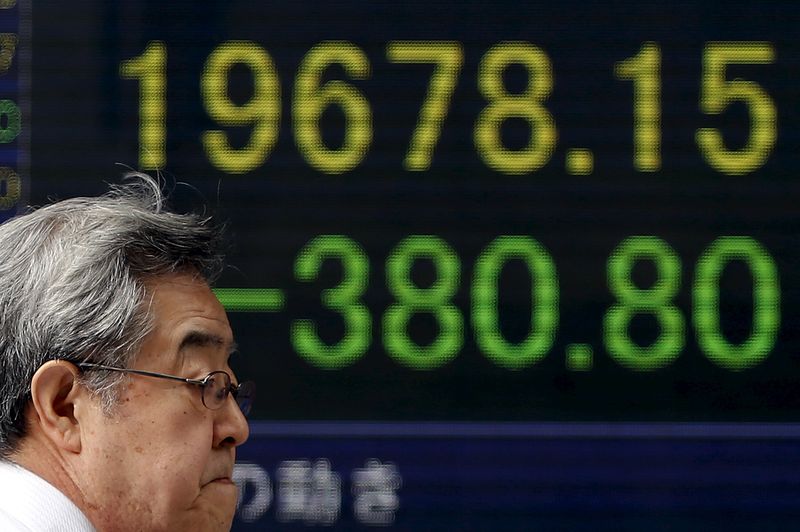By Gina Lee
Investing.com – Asia Pacific stocks were down Tuesday morning, with several countries re-imposing restrictive COVID-19 measures to curb their latest COVID-19 outbreaks.
Japan’s Nikkei 225 fell 0.87% by 10:23 PM ET (2:23 AM GMT), with data released earlier in the day saying that retail sales grew a better-than-expected 8.9% year-on-year in May. Separate employment data said that the jobs/application ratio was 1.09 and the unemployment rate was 3% in May.
South Korea’s KOSPI was down 0.37%.
In Australia, the ASX 200 fell 0.73%. Perth became the third Australian city to impose a lockdown, following Sydney and Darwin, thanks to the latest COVID-19 outbreak involving the Delta variant.
China’s Shanghai Composite fell 0.70% and the Shenzhen Component inched down 0.05%. The country will release its manufacturing and non-manufacturing purchasing managers’ indexes on Wednesday, followed by President Xi Jinping’s speech to mark the 100th anniversary of the founding of the Chinese Communist Party a day later.
Hong Kong’s Hang Seng was down 0.47%. The market reopened for Monday’s afternoon session after being shut in the morning. The city also said that it would ban flights from the “extremely high risk” U.K. due to the latter's latest COVID-19 outbreak that also involving the Delta variant.
However, U.K. Prime Minister Boris Johnson remains confident that the country would be able to fully re-open in July as planned.
Global shares are set to end the second quarter of 2021 with a fifth consecutive quarterly advance as COVID-19 vaccine rollouts continue globally. However, the debate over elevated valuations reignited as concerns continue to mount over whether price pressures will lead central banks to start asset tapering sooner than expected.
Some countries' economic recovery from COVID-19 also drove the reflation trade. However, recovery in other countries, including those in Asia, has been slower than expected.
“The Delta variant has also emerged in our client conversations as a potential threat to reflation/inflation,” J.P. Morgan Chase & Co. analysts led by Marko Kolanovic said in a note.
“The economic consequences are likely to be limited given progress on vaccinations across developed market economies. It could, however, pose some risk of a delay in the recovery in countries where vaccination rates remain lower,” the note added.
Other investors said, however, that the reflation trade is far from over.
The recovery is “starting in the U.S. and then spreading around the world... the reflation trade is taking a bit of a pause, but it doesn’t mean it’s over,” Advisors Capital Management partner and portfolio manager JoAnne Feeney told Bloomberg.
Meanwhile, the Organization for Economic Co-operation and Development (OECD) will meet in Paris on Wednesday, where it will finalize a proposal to overhaul global minimum corporate taxation. Elsewhere in the continent, European Central Bank President Christine Lagarde is scheduled to speak on Friday.
Investors also await the U.S. jobs report, including non-farm payrolls, for June, also due on Friday.
